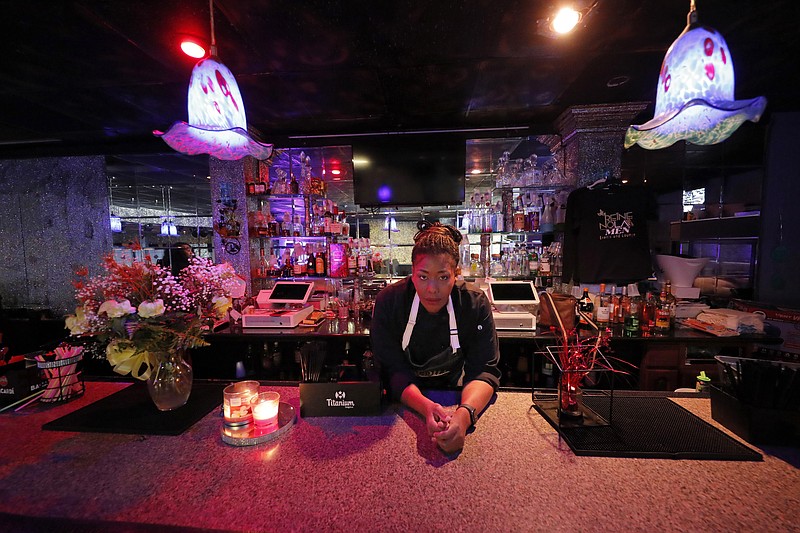[<a href="https://www.newstribune.com/news/health/" style="color:#33AEFF">access the News Tribune Health section</a>]
NEW ORLEANS (AP) - Barely a week ago, David McGraw was cooking daily for hundreds of fine diners at one of New Orleans' illustrious restaurants.
Today, he's cooking for himself, at home - laid off along with hundreds of thousands of people across the U.S. in a massive economic upheaval spurred by efforts to slow the spread of the coronavirus.
U.S. Department of Labor figures to be released today are expected to shatter the old record for the greatest number of new unemployment claims filed in a single week. There are more suddenly jobless Americans than during the Great Recession - and more than in the aftermath of major natural disasters such as hurricanes, fires and floods.
However, the unemployed don't need official numbers to understand the new realities of life in one of the nation's hot spots for the virus that causes the COVID-19 disease.
"The whole city, laid off. Everybody," McGraw said, using an exaggeration that didn't seem like much of one. "Everybody who worked at a restaurant is laid off."
Restaurants, hotels, airlines, automakers and entertainment venues all have been hit hard as cities, states and entire countries have ordered the closure of non-essential businesses and directed residents to remain at home.
The goal is to prevent the spread of the new coronavirus. For most people, it causes mild or moderate symptoms, such as fever and cough that clear up in two to three weeks. However, for some, especially older adults and people with existing health problems, it can cause more severe illness, including pneumonia and death.
Virus precautions have affected the worldwide economy. Companies in Europe are laying off workers at the fastest pace since the global financial crisis in 2009, according to surveys of business managers.
Official labor statistics for Europe are not yet out, but companies have been announcing tens of thousands of job cuts - permanent and temporary. The rise in joblessness may not be as sharp as in the U.S., however, because it is harder to fire workers in Europe, where many governments are supporting companies financially to keep workers on partially paid leave.
Some economists project the U.S. could see around 3 million new unemployment insurance claims when figures are released for the week of March 15-21. That would be around 12 times as many as the previous week.
"It's going to be an astronomical increase," said Constance Hunter, president of the National Association for Business Economists and chief economist at the accounting firm KPMG. "We don't have any recorded history of anything like this."
In Labor Department records dating to 1967, the largest seasonally adjusted one-week number of new unemployment insurance claims was 695,000 in October 1982, when the national unemployment rate was around 10 percent.
Before coronavirus concerns escalated this month, the U.S. unemployment rate had been at a 50-year low of 3.5 percent
That is certain to rise as the number of laid-off workers soars.
In Louisiana alone, 71,000 people filed new unemployment applications last week, compared to the usual 1,400-1,500 people per week, state labor secretary Ava Dejoie said.
Louisiana has one of the highest per capita counts of coronavirus cases in the country. Democratic Gov. John Bel Edwards has ordered nonessential businesses to close, limited restaurants to takeout and delivery, banned gatherings of more than 10 people and directed residents to remain at home.
Workers can seek unemployment benefits from their home state immediately after losing their jobs. However, it typically takes two to three weeks before they receive any money, because state agencies first have to contact their former employers to verify their work history and then calculate the amount of their weekly benefits based on their previous wages.
That wait could last longer because of the sudden spike in unemployment claims. People should expect "that first benefit payments will take much longer than 21 days," California's Legislative Analyst's Office warned earlier this week.

